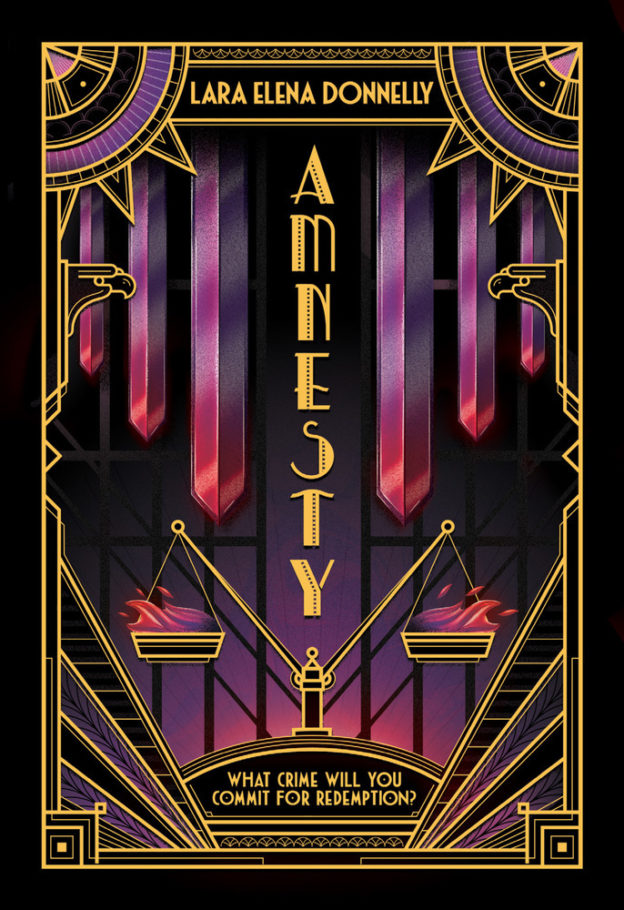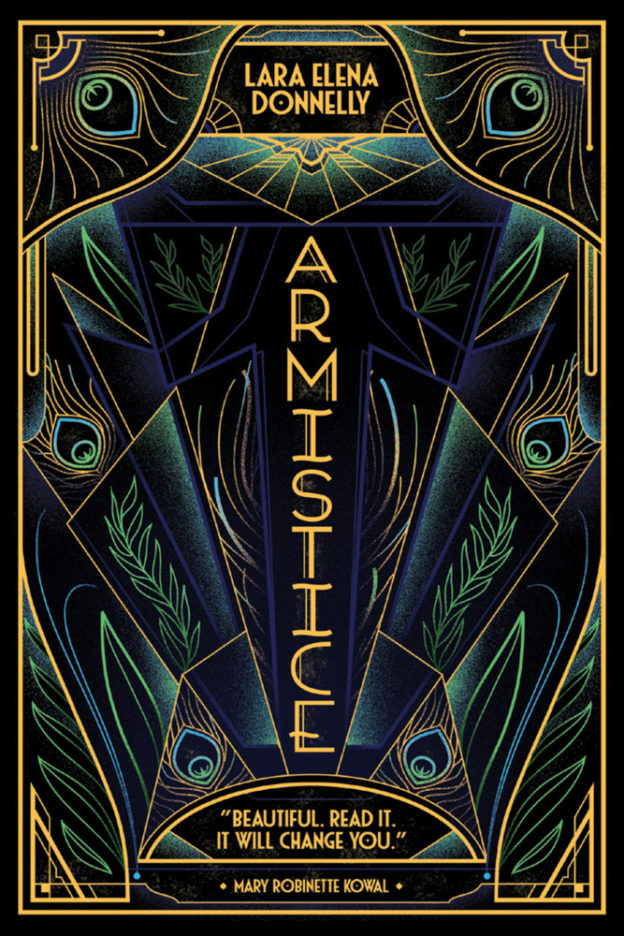I’ve been looking forward to the finale to the Amberlough Dossier series for some time, and Amnesty did not disappoint. If Amberlough was like fantasy Cabaret and Armistice was like fantasty Casablanca, then Amnesty was like the fantasy Nuremberg trials. Gedda is trying to put itself together after seven years of OSP rule, and trying to work out how much each person is guilty for what happened. It’s a meditation on what justice is and whether anybody can get it. None of the main characters get just fates, but they do get satisfying ones.
Mad artistic props to Donnelly for not being afraid to write about permadeath.
As in the other books, she excels at characters and their inner workings. I wanted to know what happens to these screwed-up people to the last page.
My main complaint is the same I had for the other two books: I want politics. Donnelly’s really a romance writer who happens to have spies and governments in these books. Why was Gedda a GLBT paradise before the One State Party came to power? What was OSP ideology? They were homophobic, I guess? What was Hearther doctrine? The Hearther religion had political power under OSP rule and then they lost it again. Hearthers should remember this, yet lingering OSP support is nowhere to be found.
Gedda is supposed to be having a European-style election over the course of the book, yet Gedda’s parliament is nowhere to be found, either. Most irksome of all, two characters are running for prime minister. If Donnelly didn’t catch that, then Tor’s fact checkers really should have.
But I’m so glad the Amberlough Dossier exists. I don’t see nearly enough 20th-century fantasy, especially in a low-magic world that focuses on its people. My favorite scene of Amnesty took place at an all-night automat. As a smuggler cuts a deal with a radio broadcaster, the city of Amberlough shows how it isn’t how it used to be. Spec fiction has never ventured inside an automat before, so bravo for being on the vanguard.




